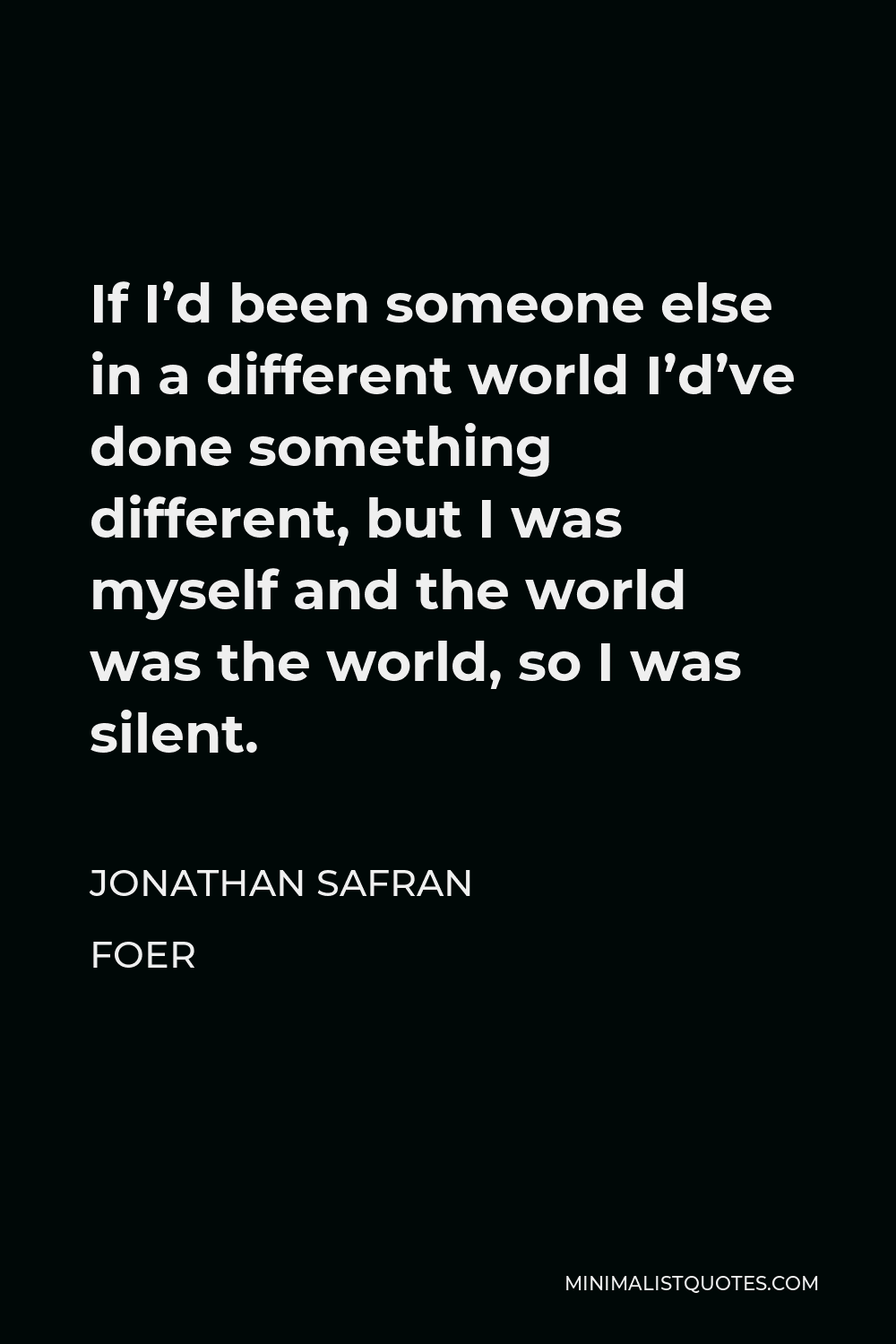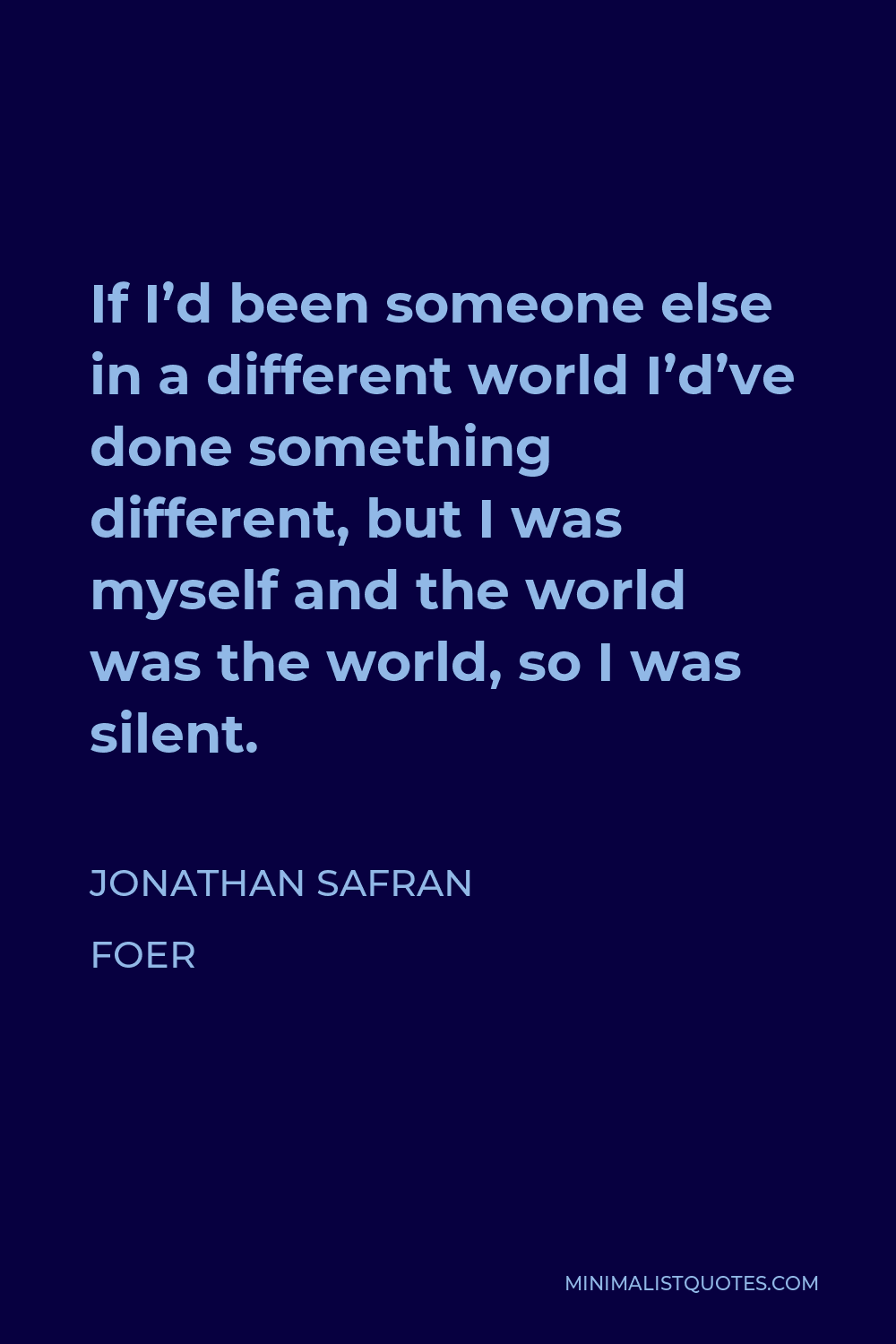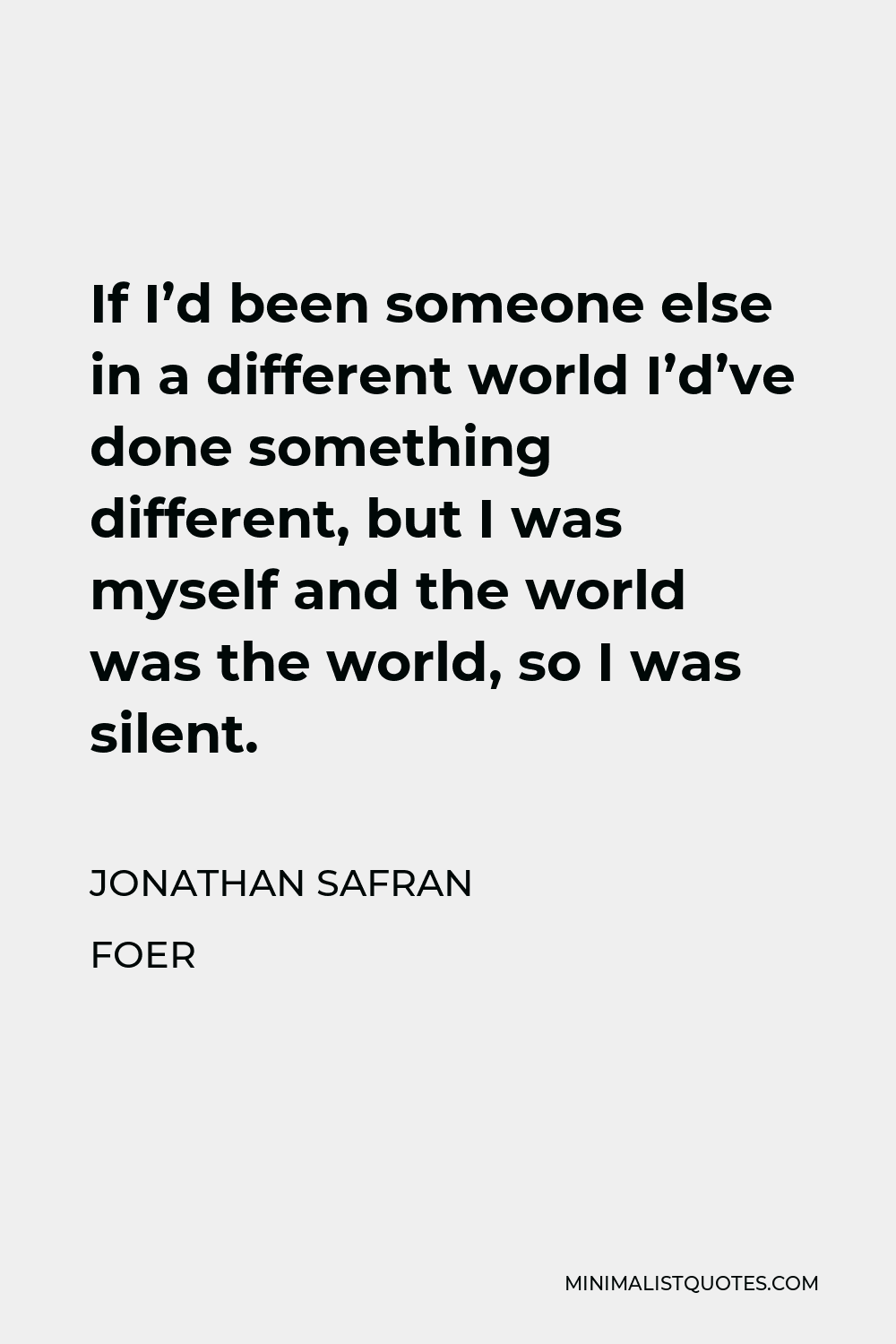I put my hand on the doorknob because I thought maybe her hand was on the doorknob on the other side.
JONATHAN SAFRAN FOERIf I’d been someone else in a different world I’d’ve done something different, but I was myself and the world was the world, so I was silent.
More Jonathan Safran Foer Quotes
-







-







He was someone whom everyone admired and liked but whom nobody knew. He was like a book that you could feel good holding, that you could talk about without ever having read, that you could recommend.
JONATHAN SAFRAN FOER -





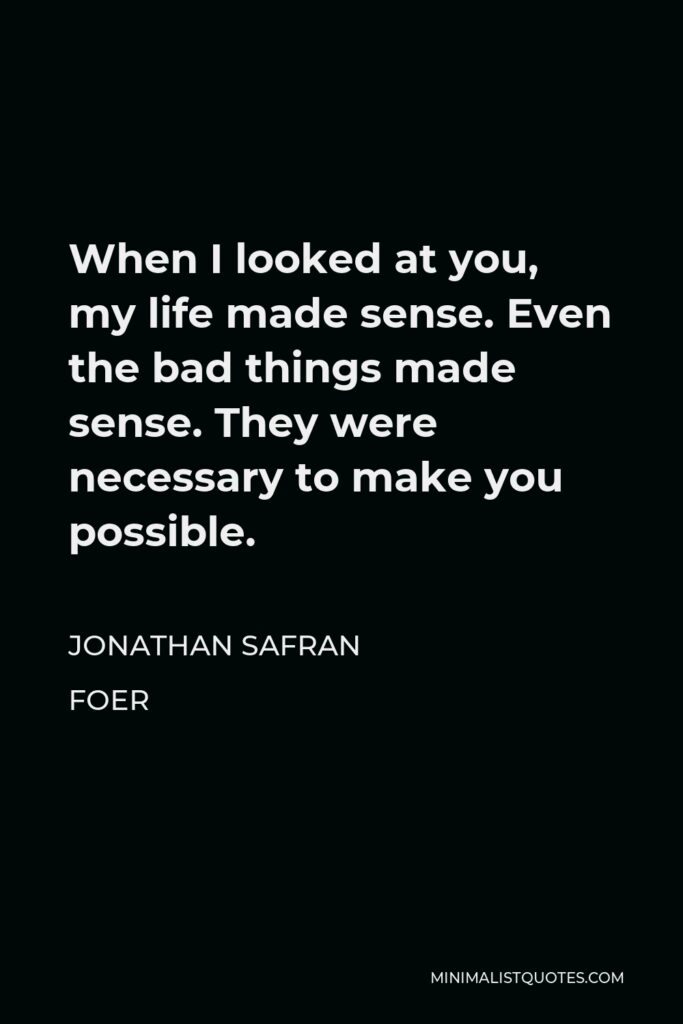

When I looked at you, my life made sense. Even the bad things made sense. They were necessary to make you possible.
JONATHAN SAFRAN FOER -







I wish my days could be washed away like the chalk lines of my days.
JONATHAN SAFRAN FOER -





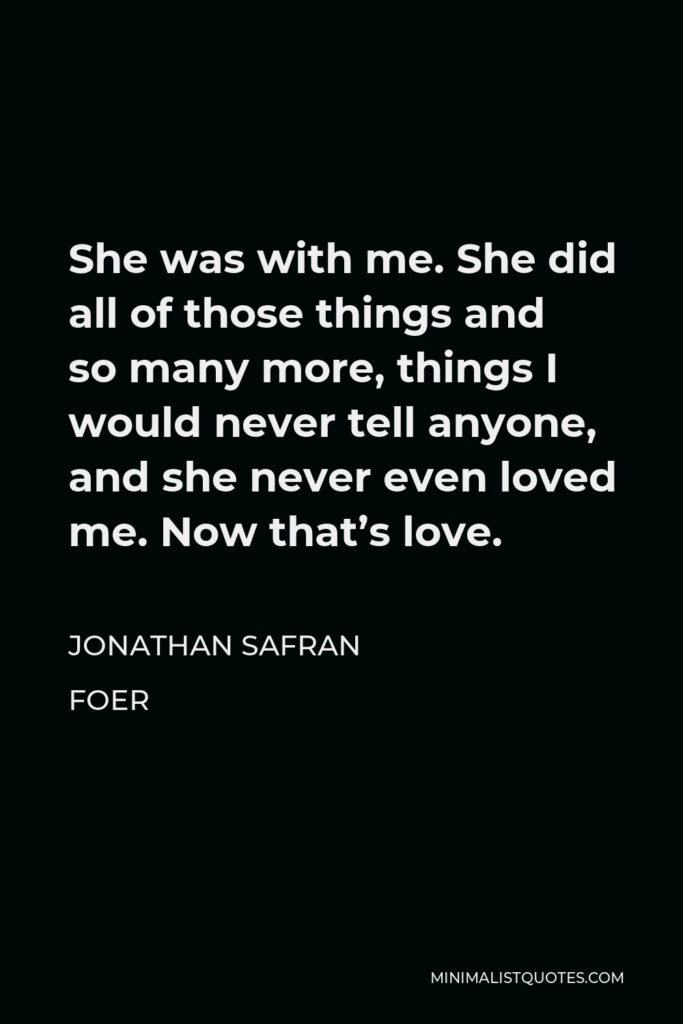

She was with me. She did all of those things and so many more, things I would never tell anyone, and she never even loved me. Now that’s love.
JONATHAN SAFRAN FOER -





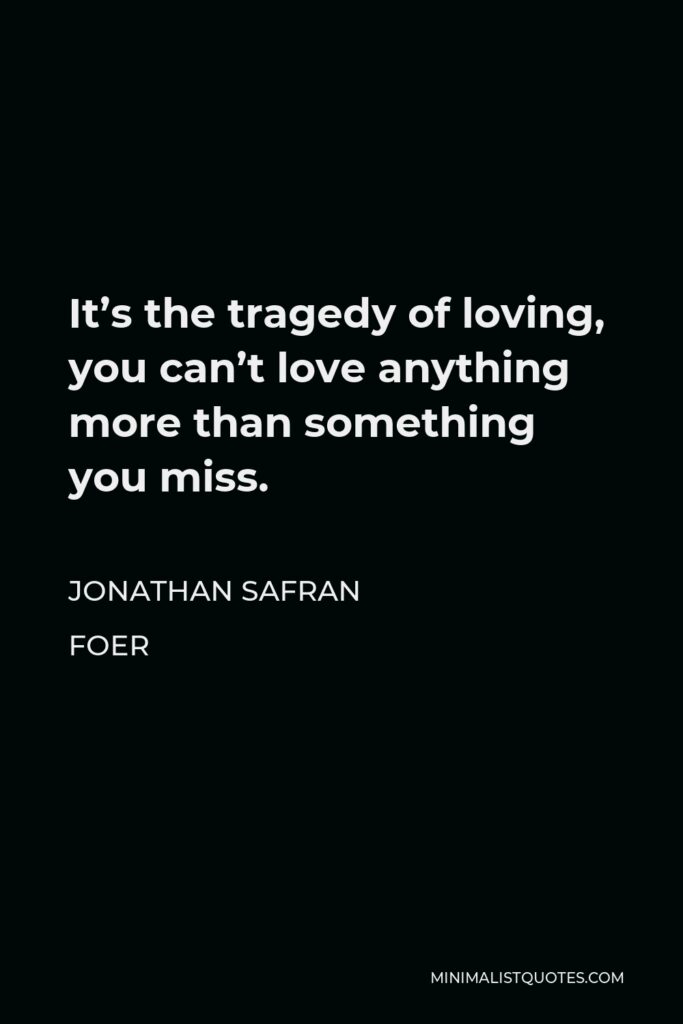

It’s the tragedy of loving, you can’t love anything more than something you miss.
JONATHAN SAFRAN FOER -





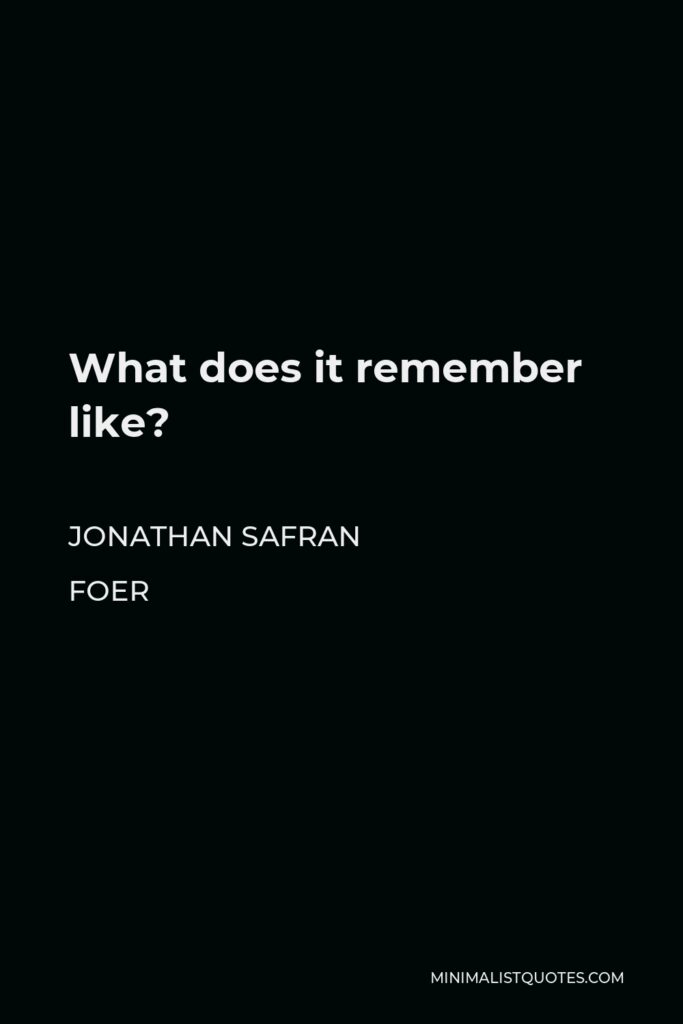

What does it remember like?
JONATHAN SAFRAN FOER -





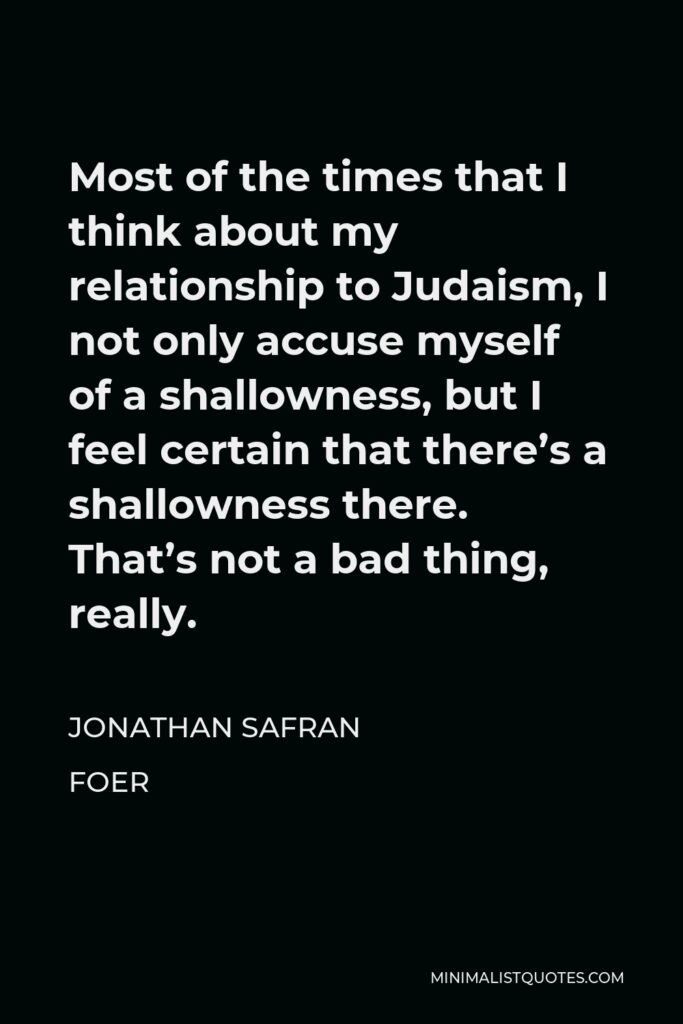

Most of the times that I think about my relationship to Judaism, I not only accuse myself of a shallowness, but I feel certain that there’s a shallowness there. That’s not a bad thing, really.
JONATHAN SAFRAN FOER -





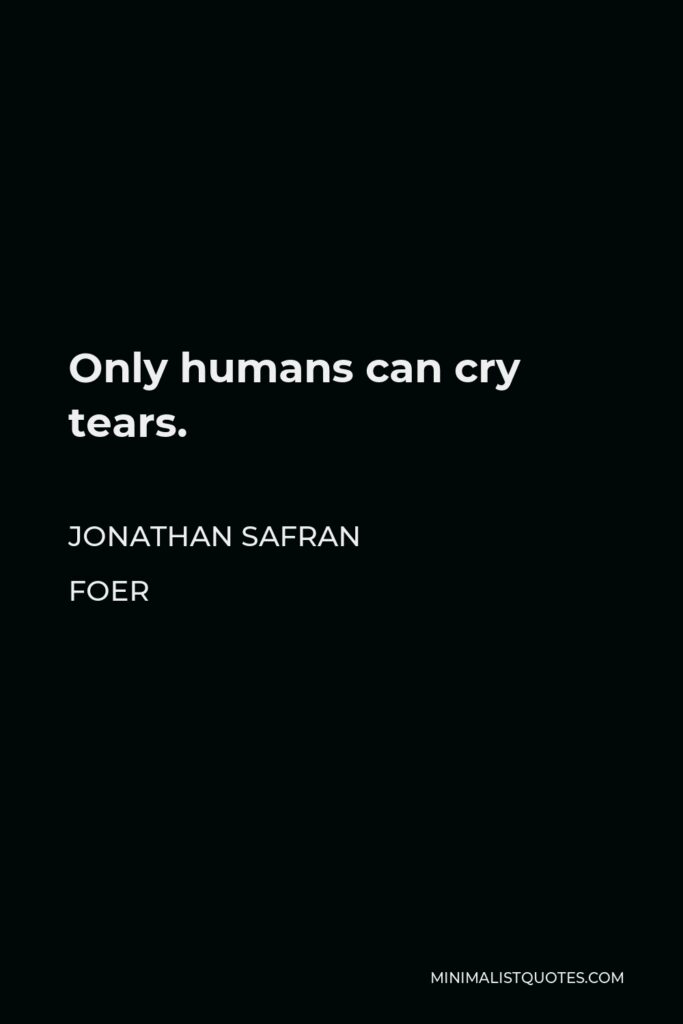

Only humans can cry tears.
JONATHAN SAFRAN FOER -





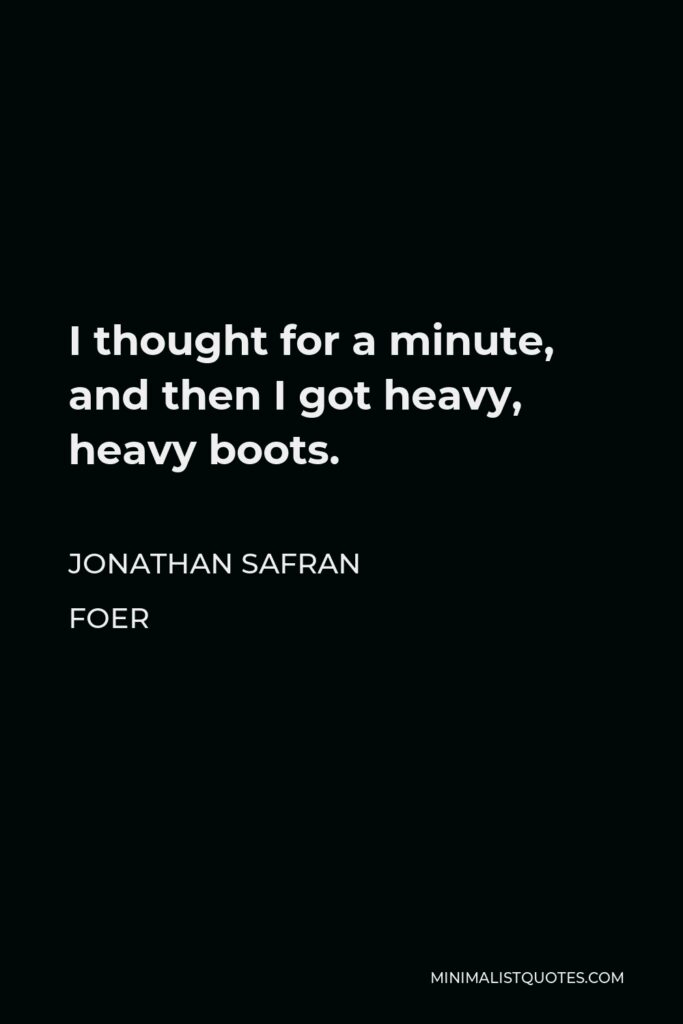

I thought for a minute, and then I got heavy, heavy boots.
JONATHAN SAFRAN FOER -







The more you love someone, he came to think, the harder it is to tell them. It surprised him that strangers didn’t stop each other on the street to say I love you.
JONATHAN SAFRAN FOER -





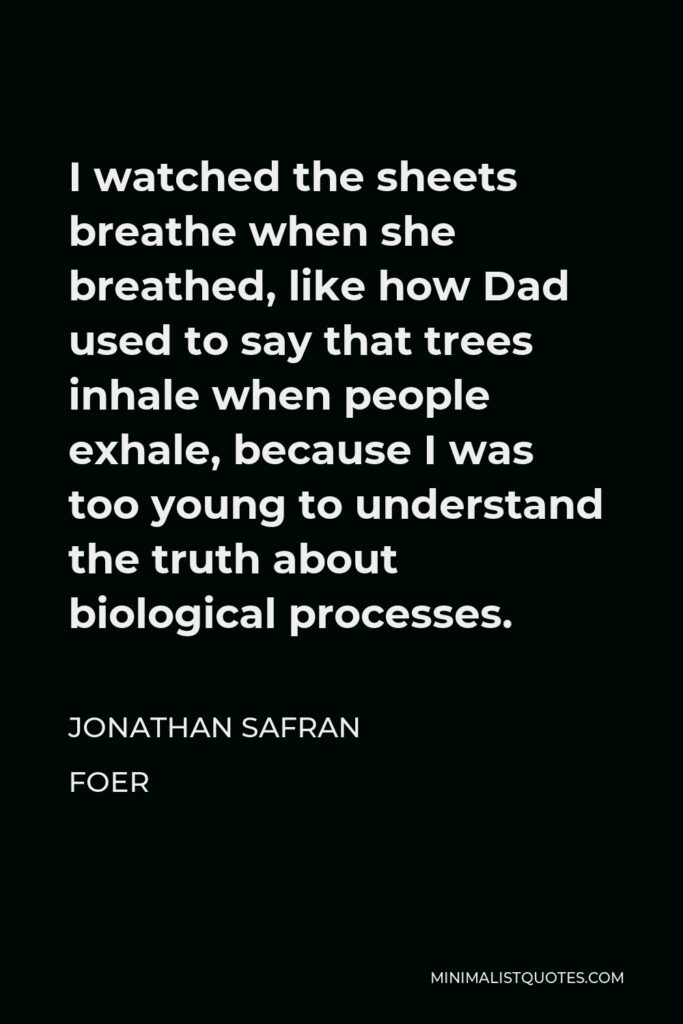

I watched the sheets breathe when she breathed, like how Dad used to say that trees inhale when people exhale, because I was too young to understand the truth about biological processes.
JONATHAN SAFRAN FOER -





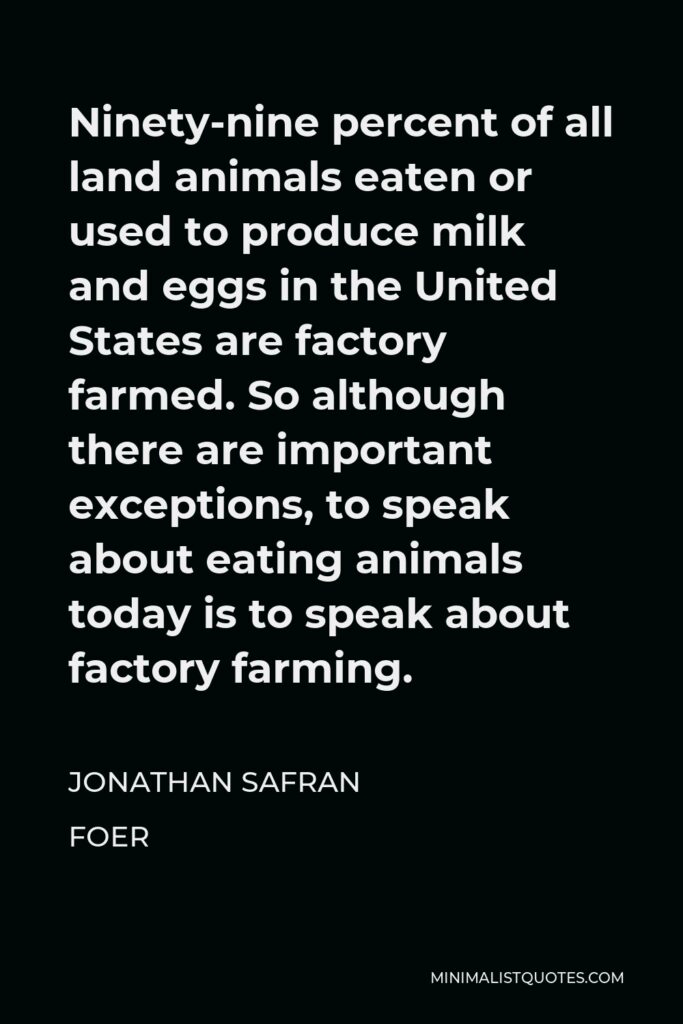

Ninety-nine percent of all land animals eaten or used to produce milk and eggs in the United States are factory farmed. So although there are important exceptions, to speak about eating animals today is to speak about factory farming.
JONATHAN SAFRAN FOER -







So many people enter and leave your life! Hundreds of thousands of people! You have to keep the door open so they can come in! But it also means you have to let them go!
JONATHAN SAFRAN FOER -







Shyness is when you turn your head away from something you want.
JONATHAN SAFRAN FOER -







People with nothing to declare carry the most.
JONATHAN SAFRAN FOER
